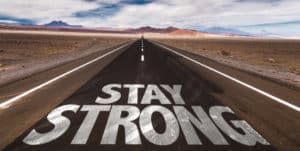At The Crossroads is a failure to launch program, offering therapeutic residential and transitional treatment programs for troubled teens and young adults. To help gain a better understanding of the term “failure to launch,” we have come up with our own definition. Failure to launch is a term that describes a young adult’s inability to leave home at the appropriate time of maturity and make the transition to independence and self-sufficiency.
At The Crossroads (ATC) is a transitional living program for young adults struggling with failure to launch issues. When young adults fail to launch successfully, they may be in need of intervention or help – much like in the popular Hollywood movie. Transitional living programs, like ATC, provide housing, job training and skills training so that the young adult student can prepare to take their place in the world. 
This issue of failure to launch is, as a matter of fact, largely a male problem, and much more prominent in the emerging young generation Y (aka millennials). David Brooks of The New York Times wrote an interesting article specifically about this problem, and his piece is called “Why Men Fail.” Here At The Crossroads, we understand why our boys (and some girls) seem to be lacking what is needed for contemporary success; and as a parent, you can count on ATC to help your loved one develop the tools necessary for success.
Transitional Living Programs

If your family needs help, we encourage you to contact our Admissions Director at 866-439-0354 for further information about our services.
Here At The Crossroads, the primary purpose or mission for our transitional living environment is to help the resident, through life skills training, become a productive and independent member of society. ATC’s transitional living program will help your loved one do just that, make the transition from where they are now, to where they should be. Although our program is also considered a halfway home for young adults or a sober living home, At The Crossroads will help any young adult achieve sobriety, independence, greater spirituality, and success. Transition programs for young adults are not easy to find, because many are primarily focused on abstinence, however, ATC will help with job training and applicable life skills.
Outward Bound Programs For Struggling Young Adults
ATC is an outbound program that exists entirely to assist young adults, ages 18-25, who may be experiencing real life struggles. We do this by helping troubled teens and struggling young adults acquire the mindset and skills that will help them transition into adulthood. Our staff is prepared and qualified to teach these young adults the true values and life skills necessary to live independently and face the adversities of life in a mature way. The proven, in-depth program offered by At The Crossroads prepares young men and women, who may have a history of substance abuse, to change and begin making critical life decisions. We help the resident learn to make decisions that are proactive and powerful, propelling them into adulthood with a solid foundation.
For testimonials from current and past ATC families, give us a call (866) 439-0354.
Other Resources for Parents:
Psychology Today – Psychology Today is committed to everybody’s favored topic: Themselves! PsychologyToday has assembled notable psychologists, academics, psychiatrists and writers in the industry to give their insights and approaches on what makes all of us “tick.”
National Council on Alcoholism and Drug Dependence – NCADD is here to lend a hand. They are prepared to aid you and your community gain greater understanding about the illness of addiction and what you can do about it.


Recent Comments